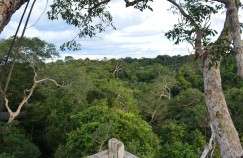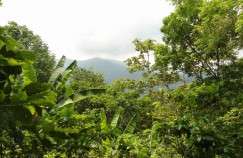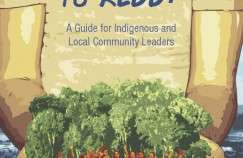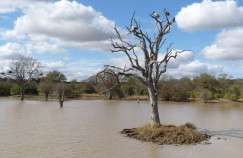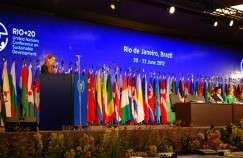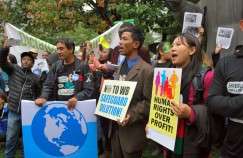Forests are vital to sustaining life on this planet. Nearly 1.6 billion people depend on forests for their lives and livelihoods, and three-quarters of our freshwater comes from forested watershed areas. Forests can absorb and store large amounts of carbon, contribute to water vapor formation, maintain cloud cover, and support biodiversity.
To achieve permanent greenhouse gas emission reductions at scale, it is generally accepted that mitigation efforts, like REDD+, will need to provide a wide range of social, environmental, and governance benefits. Achieving an equitable distribution of benefits is crucial to enhancing biodiversity, improving the recognition of the rights of indigenous peoples and local communities, and strengthening forest governance.
Any development project, conservation-based policy or climate mitigation effort should respect the rights of indigenous peoples and local communities. CIEL works with indigenous peoples and other local communities to support their full and effective engagement in these forest-related initiatives. Achieving this objective includes designing policies and promoting coherence among different international instruments related to climate, forests, and human rights.

